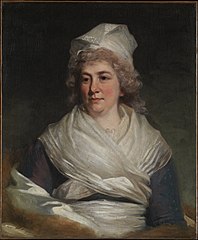“Send her a doll not a fine one”
On 16 Sept 1779, Sarah Bache wrote from Philadelphia to her father, Benjamin Franklin, in France with news of his grandchildren:
It took a long time for Sarah Bache’s request to get across the Atlantic and the gift to return. Not until 23 June 1781, when Betsy was well over three and a half, did she receive a present from her grandfather. Her mother wrote:
Sarah resumed writing to her father on 19 October, saying:
Willy and our little Black ey’d parrot [Betsy] who I am sure you would be fond of if you knew her, (she is just the age Will was when you came from england, and goes down stairs just like him) both join in love to you, she desires you would send her a doll not a fine one, but one that will bear to be pul’d about with a great deal of Nursing, there is no such things to be had here as toys for ChildrenBetsy Bache had just turned two.
It took a long time for Sarah Bache’s request to get across the Atlantic and the gift to return. Not until 23 June 1781, when Betsy was well over three and a half, did she receive a present from her grandfather. Her mother wrote:
The things you sent me by C[ap]t. Smith came to hand safe he arrived in Boston, and I got them brought in a Waggon that was comming . . . Betsy was the hapiest Creature in the world with her Baby told every body who sent itOn 1 October, Sally Bache gave birth to another daughter. Her husband reported that they would name this baby Deborah after her grandmother, Franklin’s late wife.
Sarah resumed writing to her father on 19 October, saying:
the Children are delighted with their new Sister, and Betsy has gone so far as to say she loves her better than the Baby that came from FranceA few weeks later we find the new Bache baby now nicknamed by her toddler brother, and we catch a last glimpse of that hard-to-find, long-traveled French doll:
Willy, Betsy, Luly Boy and Sister Deby De join in duty the last two names are of Louis’s making, they have just been striping the French Baby and dipping her in a tub of cold water—(The first letter quoted above can be viewed here, courtesy of the American Philosophical Society.)




